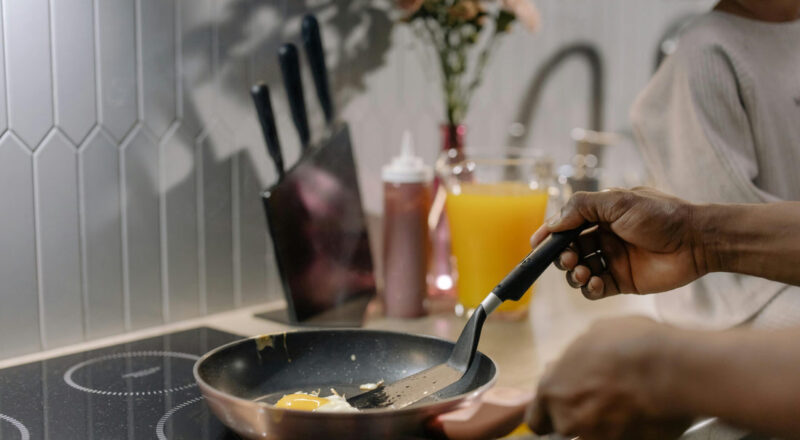The question of does induction work well with thick cast iron is one that captivates many kitchen professionals and cooking enthusiasts. With the rise of induction cooktops, understanding how they interact with thick cast iron cookware is crucial. Induction cooking is known for its efficiency and precision, but how does it fare when paired with thick cast iron skillets and pots?

What is Induction Cooking?
Induction cooking uses electromagnetic fields to directly heat pots and pans, offering a more efficient and responsive cooking experience compared to traditional gas or electric stoves. This technology requires cookware to have a magnetic base to function.
The Properties of Thick Cast Iron
Thick cast iron is renowned for its ability to retain heat, making it ideal for slow cooking and achieving even temperatures. It is durable and can withstand high temperatures. However, its weight and heat retention properties raise questions about its compatibility with induction cooking.
How Induction Cooking Works with Cast Iron
Induction cooktops work well with cast iron because of its ferrous metal content, which is essential for creating the electromagnetic reaction. The thickness of the cast iron can affect how quickly and evenly the heat is distributed.
Benefits of Using Cast Iron on Induction
Using cast iron on induction cooktops can provide several benefits, including rapid heating and precise temperature control. This makes it easier to manage cooking processes and achieve desired results.
Challenges of Induction with Thick Cast Iron
While induction cooktops can heat cast iron, the thickness of the cookware can sometimes lead to uneven heating. This is especially true for thicker pieces, which may take longer to fully heat through.
Managing Uneven Heating
To manage uneven heating, it is advisable to preheat the cast iron slowly and use the cooktop’s settings to adjust the heat as needed. This can help ensure that the entire surface of the pan reaches the same temperature.
Potential for Cold Spots
Thick cast iron can sometimes develop cold spots, particularly if the induction cooktop does not cover the entire base of the cookware. This can affect cooking performance and cause uneven results.
Practical Tips for Using Cast Iron on Induction
Here are some practical tips to optimize the use of thick cast iron on induction cooktops:
- Preheat your cookware gradually to avoid thermal shock.
- Ensure the base of the cast iron is flat and clean for proper contact.
- Use a cooking mat or interface disc if needed to improve contact.
Comparing Induction with Other Cooking Methods
When comparing induction to other cooking methods, such as gas or electric, induction offers faster heating and more precise control. However, understanding the specific needs of thick cast iron can help in choosing the right method for your culinary needs.
Advantages of Induction
Induction is known for its speed and efficiency. It heats only the pot or pan, reducing energy waste and keeping the kitchen cooler.
When to Choose Gas or Electric
Gas and electric cooktops may still be preferred by some for their ability to evenly heat very thick cast iron without the need for special adjustments.
Conclusion: Is Induction Right for Your Cast Iron?
In conclusion, does induction work well with thick cast iron? Yes, it does, but with some considerations. By understanding the properties of cast iron and how induction works, you can optimize your cooking experience and enjoy the benefits of both technologies.
For more insights on using cast iron with induction cooktops, visit Cast Iron Seasoning and Lodge Cast Iron Blog.

Frequently Asked Questions
Can all cast iron be used on induction cooktops?
Yes, most cast iron cookware is suitable for induction cooking due to its magnetic properties. However, ensure the base is flat for best performance.
Why does my cast iron heat unevenly on induction?
Uneven heating can occur due to the thickness of the cast iron or if the cooktop doesnt cover the entire base. Adjusting heat settings and preheating can help.
Is it safe to use induction with old cast iron pans?
Yes, it is generally safe, but ensure that the base is not warped or damaged for optimal performance on induction cooktops.
This article contains affiliate links. We may earn a commission at no extra cost to you.

